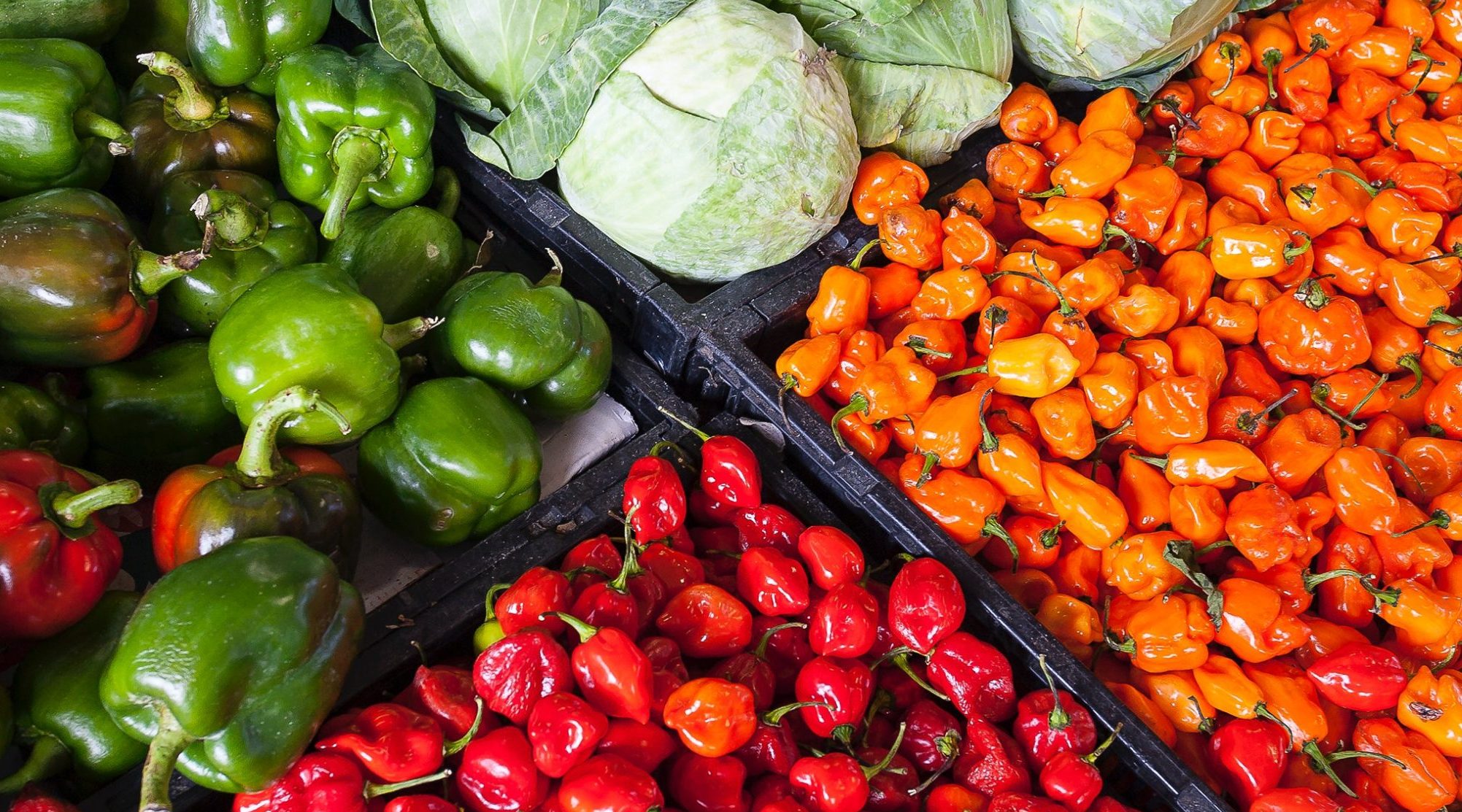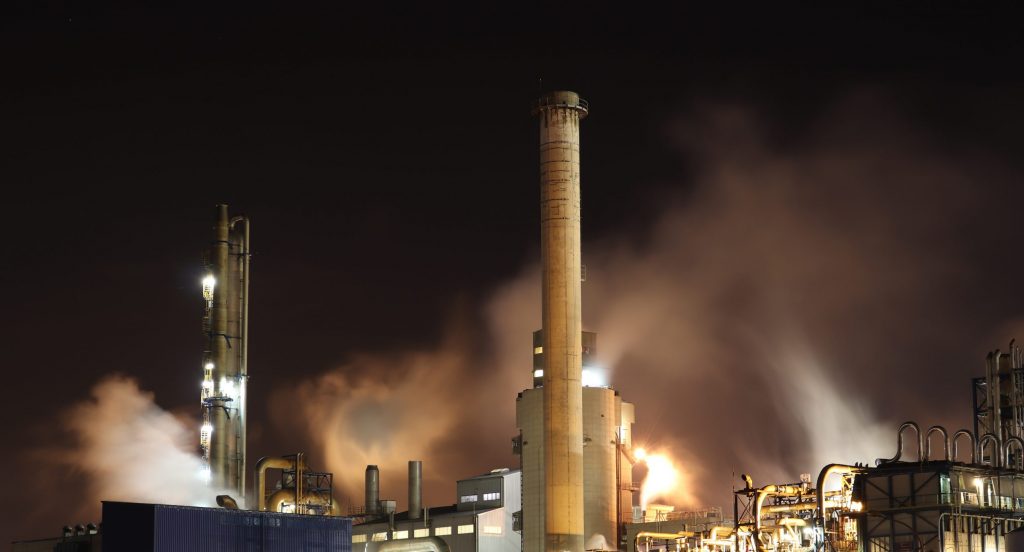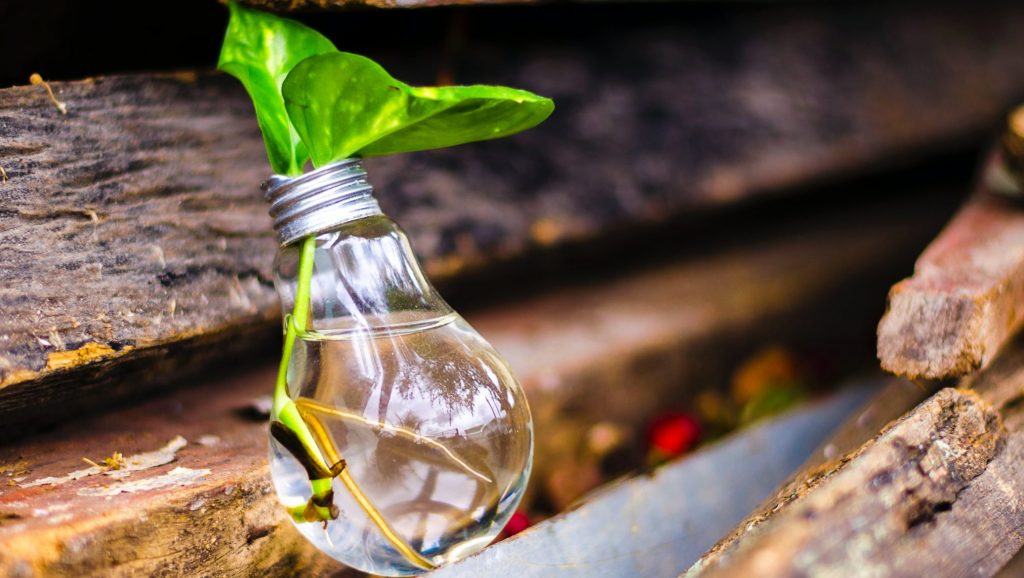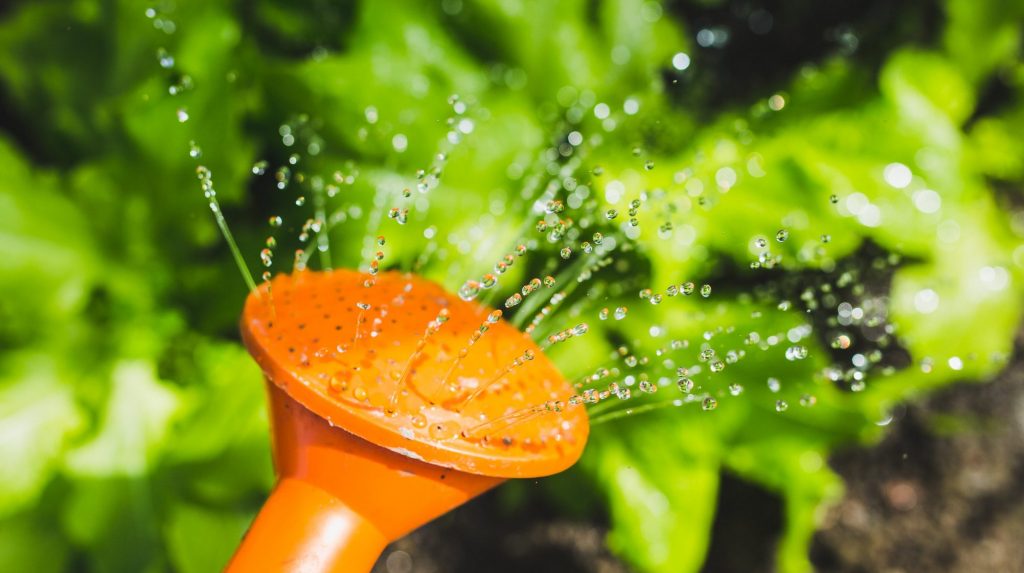Additional reporting by Adam Skaria
The brainchild of Mostafa el Nabi — a 29-year-old South Valley University graduate in his native Qena — Baramoda is a unique local startup that converts agricultural waste from sugarcane and other produce into eco-friendly biofertilizers. It claims to be the first agri-tech startup that develops tailored fertilizers in the MENA region.
Nabi’s desire to contribute to waste management and agricultural sustainability was born of his belief in technology and innovation as a way to tackle environmental and industrial issues, including reducing the often-prohibitive costs of farming, enhancing farmer expertise, and reducing the impact of things like hazardous waste and soil erosion.
With a booming population that has already surpassed 100 million, sustainability and ecological practices are becoming all but essential, not least in the strained agricultural sector, as Egypt grapples with myriad economic, societal and environmental problems from overpopulation to water scarcity, pollution and waste management.

Ventures like Baramoda provide a glimmer of hope for a brighter, cleaner and more sustainable future for Egyptian agriculture, and they reflect growing aspirations for public and private entities to tackle such endemic issues with the vigor they warrant.
Societal problem
El Nabi recounts during the nascent stages of setting up Baramoda, a panelist in a competition remarked to him to “focus on the real problems in society, and think about how to save lives rather than improve them.” He says during and after he completed his army conscription that advice remained with him, before he began realizing societal problems in his hometown of Qena.
In the post-revolution years, fertilizer prices were increasing, and coupled with natural gas and electricity shortages and outages, as well as the raising of subsidies, budding entrepreneur El Nabi ascertained that the confluence of these issues facing the worst-hit farmers, was a societal issue before an environmental or economic one.
El Nabi and his cohorts came up with the idea of establishing Baramoda to specialize in recycling sugarcane waste to produce essential biofertilizers, which they theorized would address several problems simultaneously; disposing of waste bi-products, producing a cheaper and eco-friendly fertilizer, providing local jobs and thereby improving the overall quality of life in these rural farming regions.
Shortly afterward, Nabi and his team managed to secure a top-ten finish in the IMKAN incubator and accelerator program conducted on behalf of the U.N. Industrial Development Organization (UNIDO), the Japanese Embassy in Cairo and the Ministry of Trade and Industry. As a result, they received commercial and technical training in Cairo before being selected as one of three finalists and being awarded $2,000 in 2015.
Sugarcane and able
Baramoda — which takes its name from an industry-wide Pharaonic term still used to denote the month of harvest (April) when farmers receive payment for crops — officially began in December 2016 by renting land on which waste from sugarcane factories would be collected, sorted and processed.
A prototype fertilizer was developed within a few months, but after sending it to a lab for analysis, El Nabi was informed that “regular dirt would have been more beneficial as a fertilizer than their product.” The five partners in the venture ceased operations for six months, with no viable product and a loss of hope and purpose.
But the connections they made in IMKAN proved to be a savior. One of the organizers directed them to a specialist that tested their sample at the government’s Institute for Arab Research and Studies in Maadi.

The results were as shocking to the team as they were inspiring, reinvigorating their efforts to pursue their now-promising venture. “The result came in that we had the highest concentration of organic components of any fertilizer used in Egypt, which was around 55 to 65 percent,” he says.
El Nabi believes that the first lab was either reluctant or outright deceitful in providing accurate sample results because with Qena being the nation’s sugarcane hub, producing some 140,000 tons a year, “the waste [produced after processing this tonnage] is exclusively bought by [large traders] for the production of bricks, which they burn in order to fire the bricks,” he explains.
Launchpad
After several roadblocks threatened to stifle their renewed efforts, from the Qena brickmaking racket to disagreements with investors, 2016 saw Baramoda reach another milestone after founder El Nabi discovered and subsequently entered another competition, this one sponsored by Royal Dutch Shell, called Intelaka , meaning “launch” in Arabic.
Intelaka saw El Nabi secure further funding to the tune of a modest EGP 5,000, but perhaps more importantly an award for “Best Idea in Egypt.” This brought Baramoda to the attention of Mahi el Gazzar, founder of the Gesr Foundation incubator program. “She was very interested and they took us in, helping us in terms of officially registering the business, as well as providing training, workspace and financial support,” says El Nabi.
Most significantly however, was the suggestion that the fledgling enterprise begin to use another type of waste, as sugarcane factories operate only five months of the year. “We started looking and hired someone responsible for R&D and eventually found that we could use a variety of agri-waste such as banana and tomato, among others,” El Nabi says. “The idea was developing, and we started to see our clientele grow.”
To cap off its impressive string of contest victories, Baramoda saved the best for last. With new feedstock options, the company reached the finals and took first place in Hona el Shabab , a TV show involving entrepreneurial ventures competing for funding. Baramoda’s experience here proved vital as they secured a total of EGP 600,000 for their success on the show. The lump sum proved crucial, as El Nabi hastily apportioned it to fund an in-house microbiology research lab to develop bacteria strains to help improve the quality of their fertilizers.
Wings to fly
After Baramoda’s success on Hona el Shabab , Nabi received a call from Khalid Ismail, an angel investor on the show eager to invest in the startup. This took Baramoda to new heights, allowing it to expand and construct a factory to scale up operational capacity.
“We now have an R&D facility with seven fresh PhD graduates constantly working on developing new ideas. We are tailoring our fertilizer to the land composition, water and the specific crops it is used for,” Nabi explains. The years spent conducting painstaking market research allowed Baramoda to develop a modular fertilizer that, according to Nabi, “reduces farming costs and water consumption.”
“After [our win] we were contacted by Shell to participate in a global contest that we won in our category of agriculture, and we were selected as one of the 50 best startups in Africa,” he says. This increased exposure, funding and ultimately production, resulted in a contract with the Nag Hammadi factory in Qena to supply Baramoda with 60,000 tons of waste to recycle per year. The company also contracted with a local radish factory to supply 80,000 tons of waste this year, 180,000 tons in 2021 and 250,000 tons in 2022.
Trash is treasure
“Egypt has 10 million acres of in-use arable land, resulting in 39 million tons of agri-waste,” says El Nabi. “Only 10 to 15 percent is recycled; the rest is burned or left on the land.”
The company’s success has emboldened Nabi’s resolve to transform trash into something much more valuable to Egypt’s farming communities and beyond, but on a broader scale in contributing toward alleviating pollution and wasteful practices, while promoting sustainable, eco-friendly ones in their place.
Baramoda’s production process takes three months. “We are now focused on waste in sugar, bananas, dates, tomatoes and any [viable] fruit or vegetable waste,” he says. The startup produced 800 tons of fertilizer in 2017, its first year of full-scale operation, 5,000 in 2018 and 9,188 in 2019. The forecast for 2020 is a whopping 50,000 tons.
In terms of waste recycling, Baramoda processed 2,000 tons of fertilizer in 2017, 9,000 in 2018 and 15,000 in 2019, with a projected 140,000 tons in 2020. “We have reduced costs by 20 percent and increased our productivity by 15 percent and water saving by 30 percent,” he says.
Baramoda’s factory now employs 39 workers full-time and it offers two brands of fertilizer. “Our generic fertilizer is priced below average [compared to market alternatives] at EGP 295 per ton, and our customizable fertilizer sells for EGP 400 per ton,” Nabi says.
Of the 15 companies in Egypt that recycle waste for standard bio-fertilizers, Baramoda is the only one which has its own microbiology laboratory and produces a customizable variant. “We are constantly working on what is new,” says El Nabi. Baramoda has its lab and headquarters in Cairo functioning in tandem with the factory in Qena.
Wasting success?
Despite its success so far, Baramoda still faces a variety of threats and challenges, El Nabi says, chief among them being a lack of governmental support. “We can’t find government support despite how important our work is to the future of agriculture in Egypt, which is a major contributor to the economy,” he says.
“We are disposing of waste in a safe way in addition to creating a much better and effective fertilizer,” but despite Baramoda’s customizable variant being a potential boon for Egyptian farmers, El Nabi is reticent of his firm’s expansion is limited by legislation, or the lack thereof.
Additionally, he says, Baramoda has not been able to buy land for research and must rent, with further bureaucratic complications inhibiting growth. “We can’t access banks for loans because the way they calculate credit scoring is not suited to our business model. For example, the bank demands either an environmental or industrial license. In order to get it, we must be inside an industrial zone.”
“There is no law [governing] companies that recycle waste, and therefore we are not seen as an eligible industry. If we buy arable land, we can’t register it to [Baramoda] to get the [necessary] agricultural license because the law says we must cultivate it, not conduct R&D. We want to operate in a legal way. But the law completely prevents us from formalizing our business.”
Looking to the near future, El Nabi cites the possibility of Baramoda securing further funding abroad, as similar business models are both more prevalent and prioritized in developed nations and Baramoda’s “can easily be applied outside of Egypt.”
The outlook for Baramoda remains highly promising, as the whole of 2019 saw it serve 87 clients in Upper Egypt, while this year it has supplied 120 clients in the region. Baramoda also recycled 15,000 tons of waste in January alone, as much as in all of 2019. It now boasts contracts with leading nonprofit organizations aiming for sustainability, such as Misr el Kheir .
Nonetheless, El Nabi remains cautiously optimistic and is not dissuaded by the lack of official oversight and support. “The idea of investing in [agri-waste is still largely unexplored], but we have a strong opportunity to expand,” he says. “Although the business model is very robust, [Baramoda] can’t expand to meet opportunities accordingly.”
As the industry and country at large begin to take note of its pioneering efforts, Baramoda remains a shining example of the potential and impact that young Egyptian minds and local startups can have when they are committed to addressing social and environmental issues ahead of profits and financial gain.







